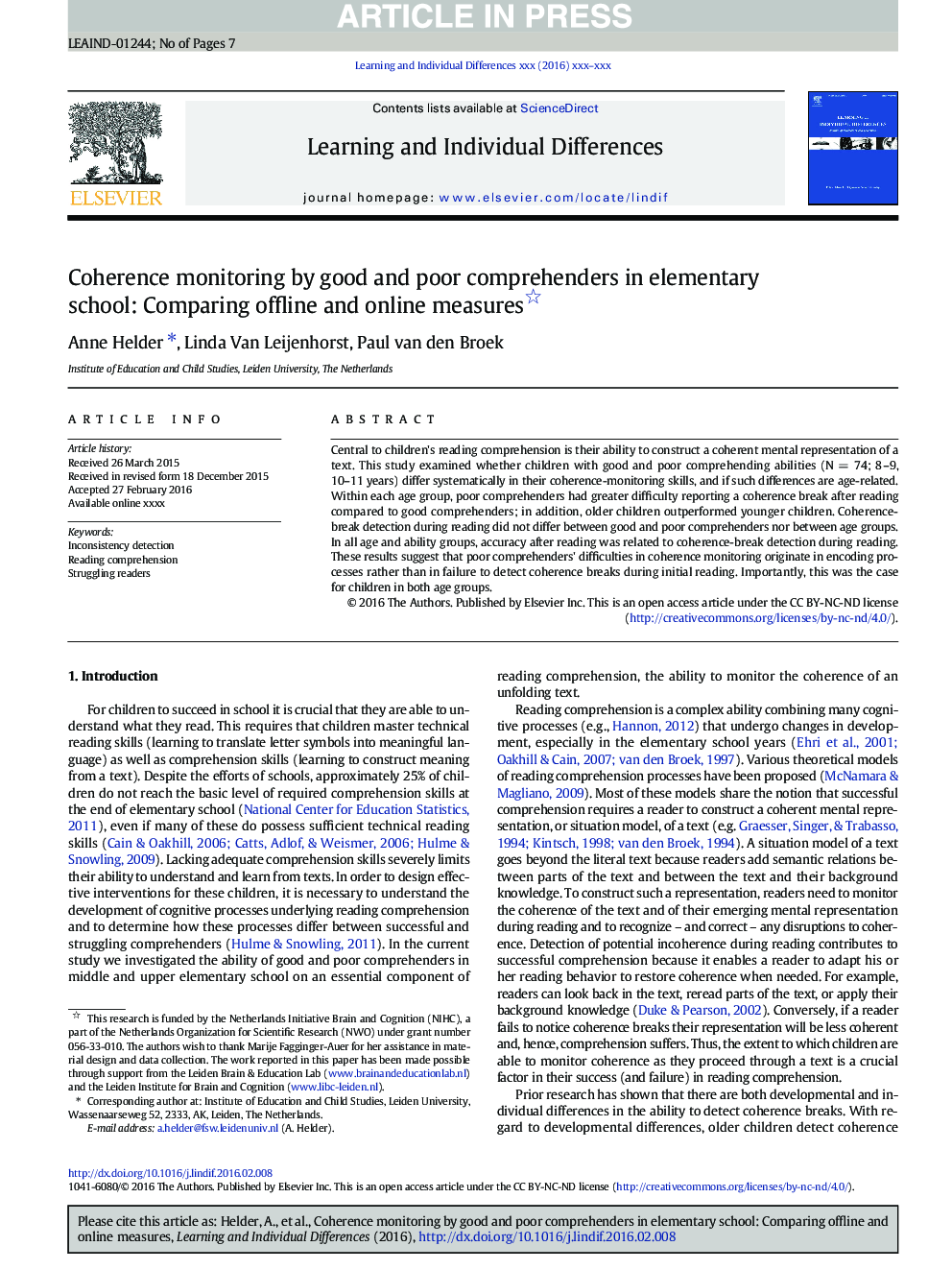| Article ID | Journal | Published Year | Pages | File Type |
|---|---|---|---|---|
| 6844853 | Learning and Individual Differences | 2016 | 7 Pages |
Abstract
Central to children's reading comprehension is their ability to construct a coherent mental representation of a text. This study examined whether children with good and poor comprehending abilities (NÂ =Â 74; 8-9, 10-11Â years) differ systematically in their coherence-monitoring skills, and if such differences are age-related. Within each age group, poor comprehenders had greater difficulty reporting a coherence break after reading compared to good comprehenders; in addition, older children outperformed younger children. Coherence-break detection during reading did not differ between good and poor comprehenders nor between age groups. In all age and ability groups, accuracy after reading was related to coherence-break detection during reading. These results suggest that poor comprehenders' difficulties in coherence monitoring originate in encoding processes rather than in failure to detect coherence breaks during initial reading. Importantly, this was the case for children in both age groups.
Related Topics
Social Sciences and Humanities
Psychology
Developmental and Educational Psychology
Authors
Anne Helder, Linda Van Leijenhorst, Paul van den Broek,
